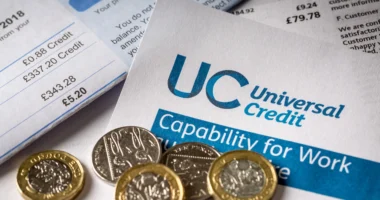
In this series, we bust the jargon and explain a popular investing term or theme. Here it’s shorting.
What is that?
Normally, investors buy shares because they like a company’s prospects.
It’s the opposite with short sellers, who think shares in a particular company are set to tumble as its managers are inept, or its prospects poor. Normally, they borrow these shares from a fund manager in exchange for a fee, then sell them. If the shares do fall, the short seller buys them back at a lower price and returns them to their owner, having made a profit along the way.
There is no guarantee that the shares will plummet, making it a risky exercise. It is possible to short other financial instruments and stock market indices as well as shares.

Who are the short sellers?: Hedge funds and other larger financial institutions with the resources to suffer unlimited losses
Who are the short sellers?
Hedge funds and other larger financial institutions with the resources to suffer unlimited losses. Lists of the shares they are shorting are available online.
Companies that have featured heavily on the lists are Cineworld, Carillion and Hammerson. The Argonaut hedge fund, which has been shorting Cineworld for four years, says the company was building ‘an empire in a sunset industry’.
Is ‘The Big Short’ realistic?
The film, based on the book The Big Short: Inside The Doomsday Machine by Michael Lewis, tells the true story of how, in 2005, Michael Burry of the Californian hedge fund Scion started to suspect that the US housing market was in a bubble. Burry’s strategy basically was to short sub-prime loans that had been packaged up and sold to investors. He made millions. Currently – and ominously – he is forecasting a stock market crash, and has sold all his shares.
What’s a short squeeze?
If the share moves sharply upwards, rather than downwards, short sellers rush to close their positions and limit their losses by buying back the shares. This forces up the price further. It is claimed that some of the recent Wall Street rally was driven by hedge funds covering their short positions.
A basket of ‘most shorted stocks’ including the retailer Bed Bath & Beyond rose by as much 49 per cent. One of the beneficiaries from the surge in the price of Bed Bath & Beyond was 20-year-old student Jake Freeman who made $110m on his stake.
I’ve heard of ‘naked shorting’
It may sound like a highly inappropriate practice, but it involves selling shares that have not been borrowed. Very risky, and the regulators very much frown on it.
I’m feeling brave…
You can put money into exchange traded funds (ETFs) from Legal & General and Wisdom Tree that enable you to short the FTSE 100. Various brokerages do allow private investors to go short but warn that it is best left to large institutions. Anyone who cannot afford unlimited losses should stay away. This year many hedge funds have lost money, so even experts get it wrong.









